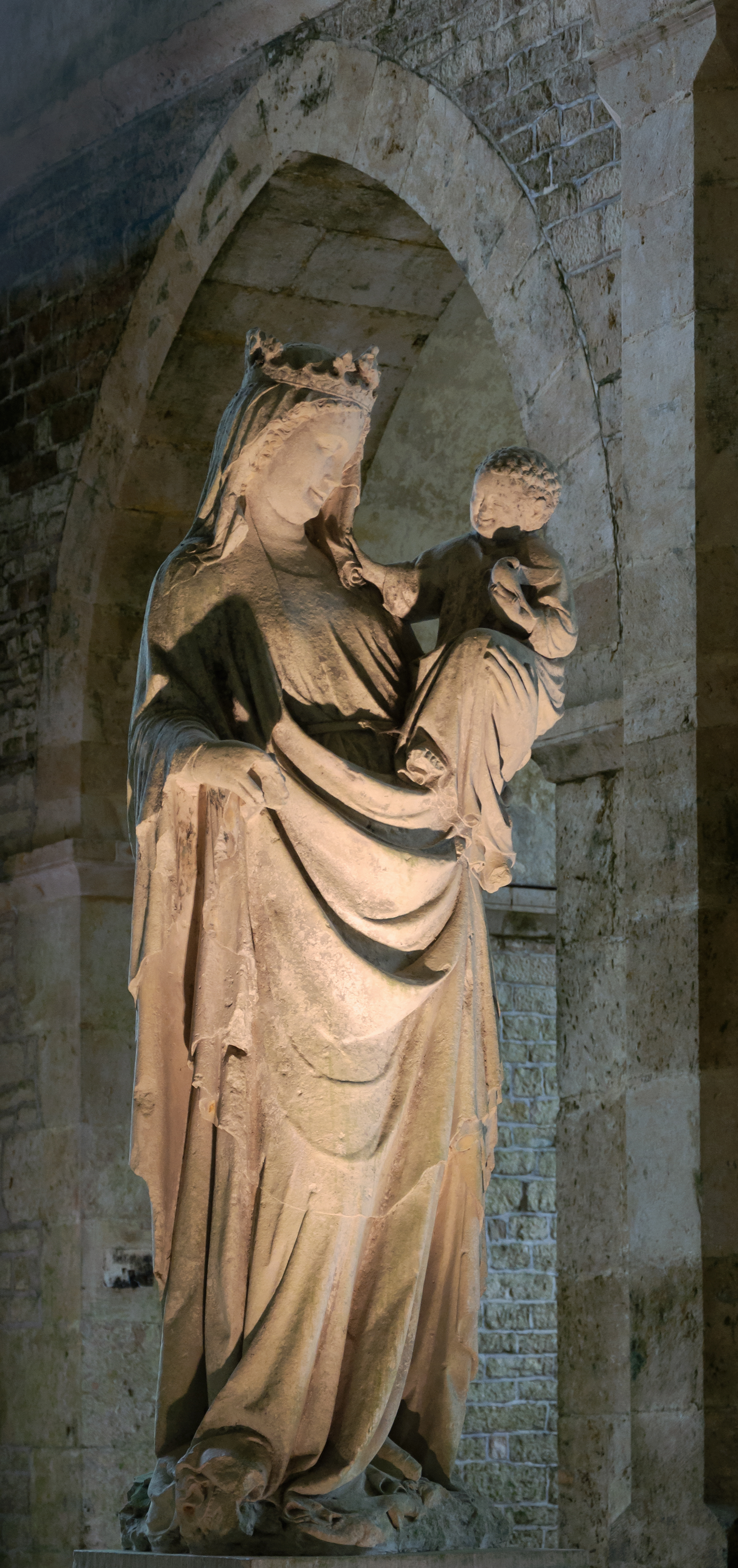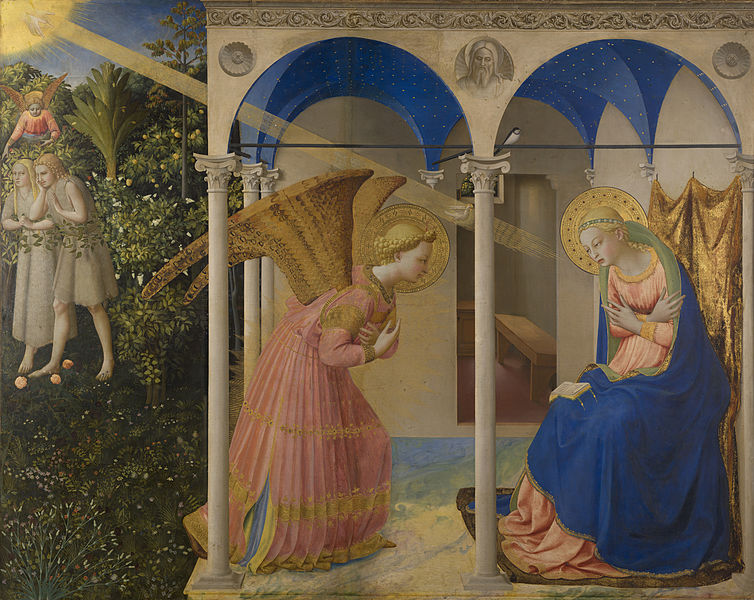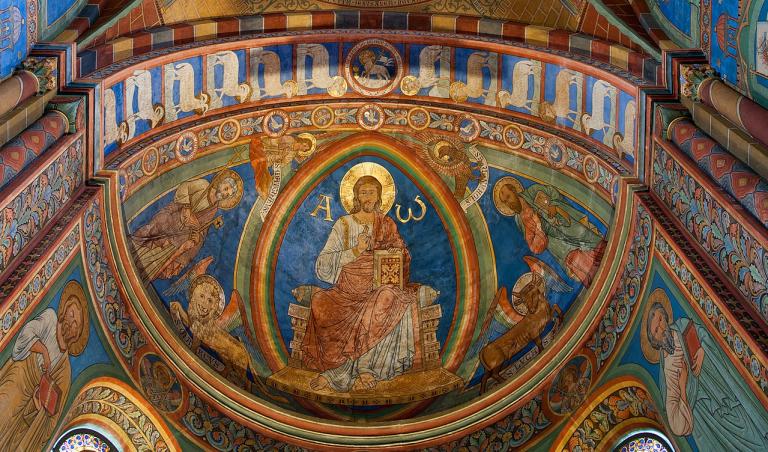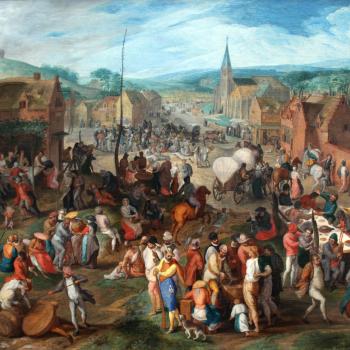David Russell Mosley

Advent
20 December 2016
The Edge of Elfland
Hudson, New Hampshire
Dear Readers,
I’ve gotten some wonderful, and some odd, comments on my last letter dealing with the sexism of the doctrine of the Virgin Birth. I’ve also read a few pieces from the Tippling Philosopher over at Patheos Nonreligious, that make me think it might be good to write another letter on this important topic before the celebration of the even (namely Christmas) arrives.
One of the things that seems to bother people most about the doctrine of the Virgin Birth (aside from its supposed impossibility) is its focus on Mary’s virginity/purity. Now, I addressed some of this in my last letter, but I want to go a step further today and talk about virginity/celibacy in general. The truth of the matter is that for the early Christians virginity was seen as a better way of life than the married life. It was higher, holier, purer. And not just for women, but for all people. In 1 Corinthians 7, for instance, Paul makes it clear that he would rather people remained celibate just as he does, but that he understands not everyone can do so. Now, there are many ways and contexts in which to understand this passage, but, it is clear that the early Church took it seriously. How do we know this? By the rise of monasticism.
By the second century we have a rise in individuals going out to the desert to be alone and pray, living celibate lives. Soon these individuals have people gather around them. Athanasius writes his book about St. Anthony; Pachomius writes his Rule; Gregory of Nyssa writes on virginity; Augustine writes on marriage and concupiscence; Cassian writes about desert monasticism; Benedict writes his Rule; etc., etc. There’s no doubt about it, celibacy is seen as the higher, the better way of life. You might disagree with this, but what you can’t do is tell me that focusing on Mary’s virginity is sexist when the overwhelming tradition is of men and women committing themselves to celibate lives.
Celibacy as well as marriage have long been integral parts of Christianity and not just for one sex, but for both. I think there might be some weight to the sexism arguments were it the case that we lift up Mary for her virginity but lifted up Christ for his sexual prowess, or any saint. But we don’t. Sure, Catholics in particular and Christians in general lift up the ideals of family life, and some may have swung too far away from the celibacy as the ideal, but this is in no way inherently sexist, nor does it make the emphasis on Mary’s virginity sexist.
Shifting gears, as I said, I came across an article by the Tippling Philosopher which was on Debunking the Virgin Birth. As it turns out this was just one article in a series. It would take me far too long to rebut every article he’s written (all of which are companion pieces to a new book he’s written on this issue). For instance, he notes the problem that only two gospel writers (who were not eye witnesses of the birth of Christ) write about the birth of Christ. Like many, he ignores the fact that the earliest Christians seemed to have been aware of this since they collected these texts together and read them together. We would have to suppose that they were all a bunch of idiots incapable of seeing discrepancies, which seems unlikely on the whole. How they might have answered his questions is not in my purview at the moment, that they would have had answers is certain. But to the article I read and that I found most problematic as an argument.
In his article, “Debunking the Nativity: The Male Genome,” Pearce makes this argument: the ancients did not understand how conception worked (namely the coming together of two genomes, one from the father and one from the mother), therefore, if we apply modern understanding, the notion of Virgin Birth makes it impossible for Jesus to have been fully human. Which is really just to say, the Virgin Birth is only possible with a wrong understanding of conception, therefore it is impossible because we have a right understanding of conception. The issue, for Pearce, centers on the fact that with a correct understanding God has to somehow provide the genetic material for the father side of Christ in order for him to be a man just like any other man (albeit perfect and also fully God). The problems with this argument are manifold.
For starters, as Pearce notes, while the ancients were not quite correct in their understanding of conception, their understanding doesn’t make the Virgin Birth any more possible. For the ancients, the sperm provided the moving cause for the fetus while the egg provided the material. The problem is, even with this understanding of conception, you still need a moving cause, you still need whatever it is the sperm normally provides. That still has to be supplied somehow. So, an ancient understanding of conception does not make the Virgin Birth any more possible than a modern understanding.
A second problem, of course, is also in the understanding of what it means for Christ to be fully man. Pearce seems to think it means he has to be a man just like himself, or me. What Pearce doesn’t recognize is that for Christians, Christ is not a man just like me, but is the perfect man who is sinless and perfectly united to God. He is the New Adam. What this means is that Christ is not required by Christian doctrine to be just like the rest of us, he is the perfect version of us, he is what we are meant to be. So the expectation that being fully human means being a human just like the rest of us is the wrong expectation. What Christians mean by that is that Christ is fully human and we are not. Now, this doesn’t solve the genome problem, but it is important.
So, what are we to do with the genome problem? Pearce thinks that if we have to say God magically supplies it then Jesus isn’t a human just like any other human. Of course, this involves an incorrect picture of God. See, in this picture, God is more like the God of the Deists or of Isaac Newton. He sets the world spinning and then steps in and intervenes from time to time when necessary. For Christians, however, God sustains every moment, every molecule at all times. In a sense, he is continuously creating reality out of nothing. What this means, then, is that if God simply supplied the male genome for Christ by creating it out of nothing (or if he simply used all of Mary’s genetic material to create the fetus) this is not magical, not a supernatural intervention but rather the Creator doing what he does at all times, creating.
This isn’t, of course, meant to convince the skeptic that the Virgin Birth really happened. My point is not to convince you that my narrative is the right one, even though I think it is. Rather, my point here is to ensure that if you’re going to argue against something like the Virgin Birth, then you need to understand what it actually means for Christians, and this means not treating it as if it took place in a secular understanding of the universe where God is presupposed not to exist, or not treating it as if it took place in a deist’s understanding of the universe where God occasionally intervenes in a self-sustaining universe, but to treat with the whole of the Christian understanding. This is the thing about Christianity. You cannot separate out its various doctrines and discreetly treat them separately, you must treat and refute the whole system, otherwise you’re arguing against straw men, against false understandings of what our doctrines are and how they work.
Sincerely,
David












